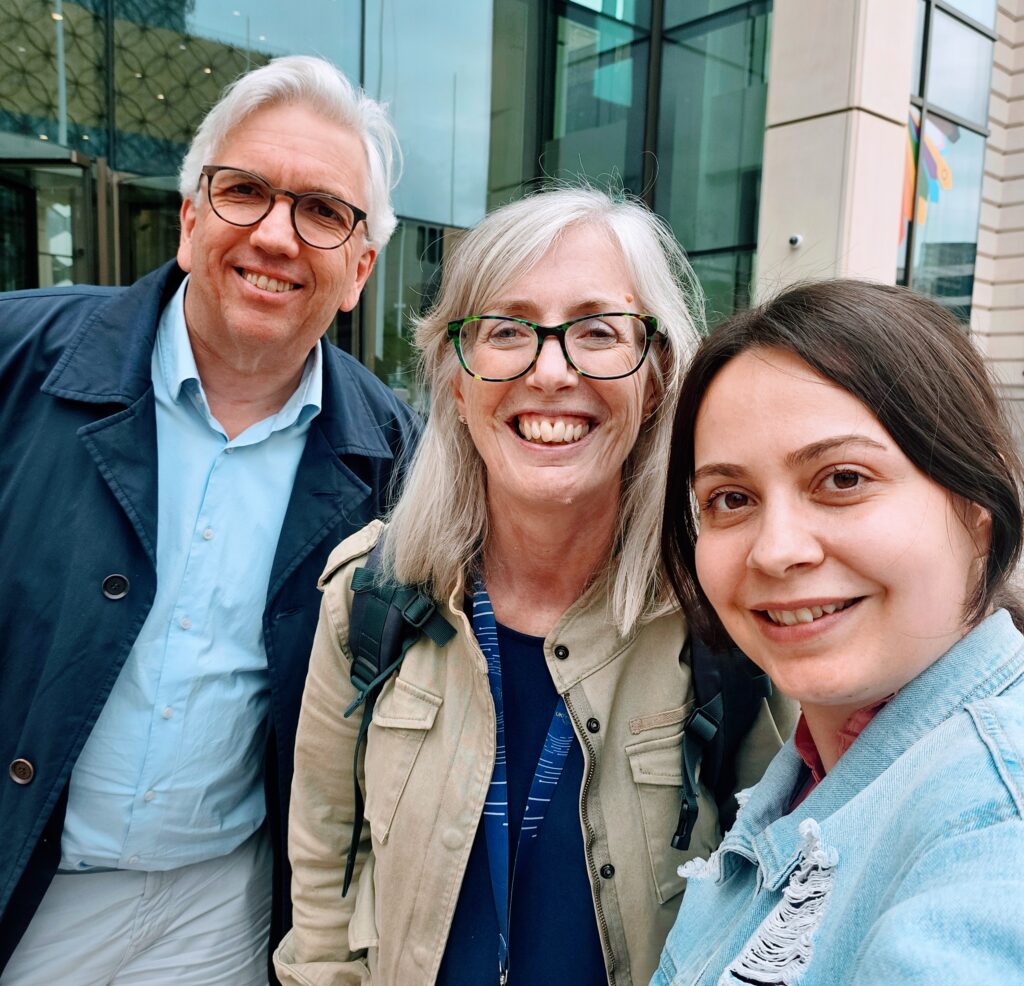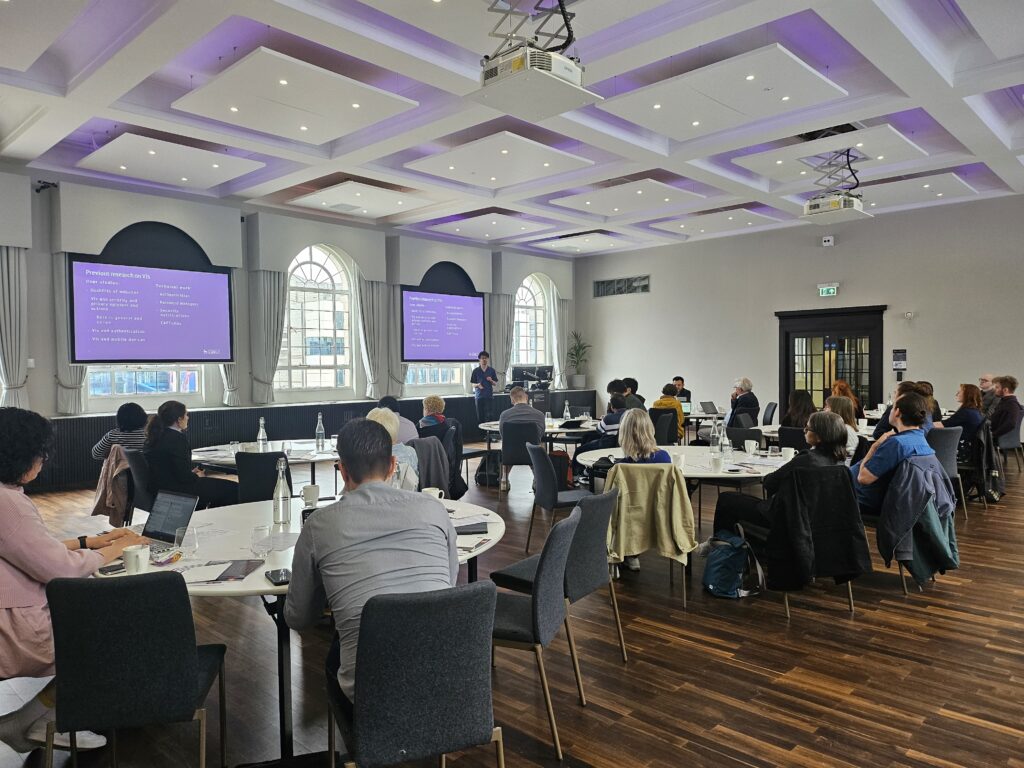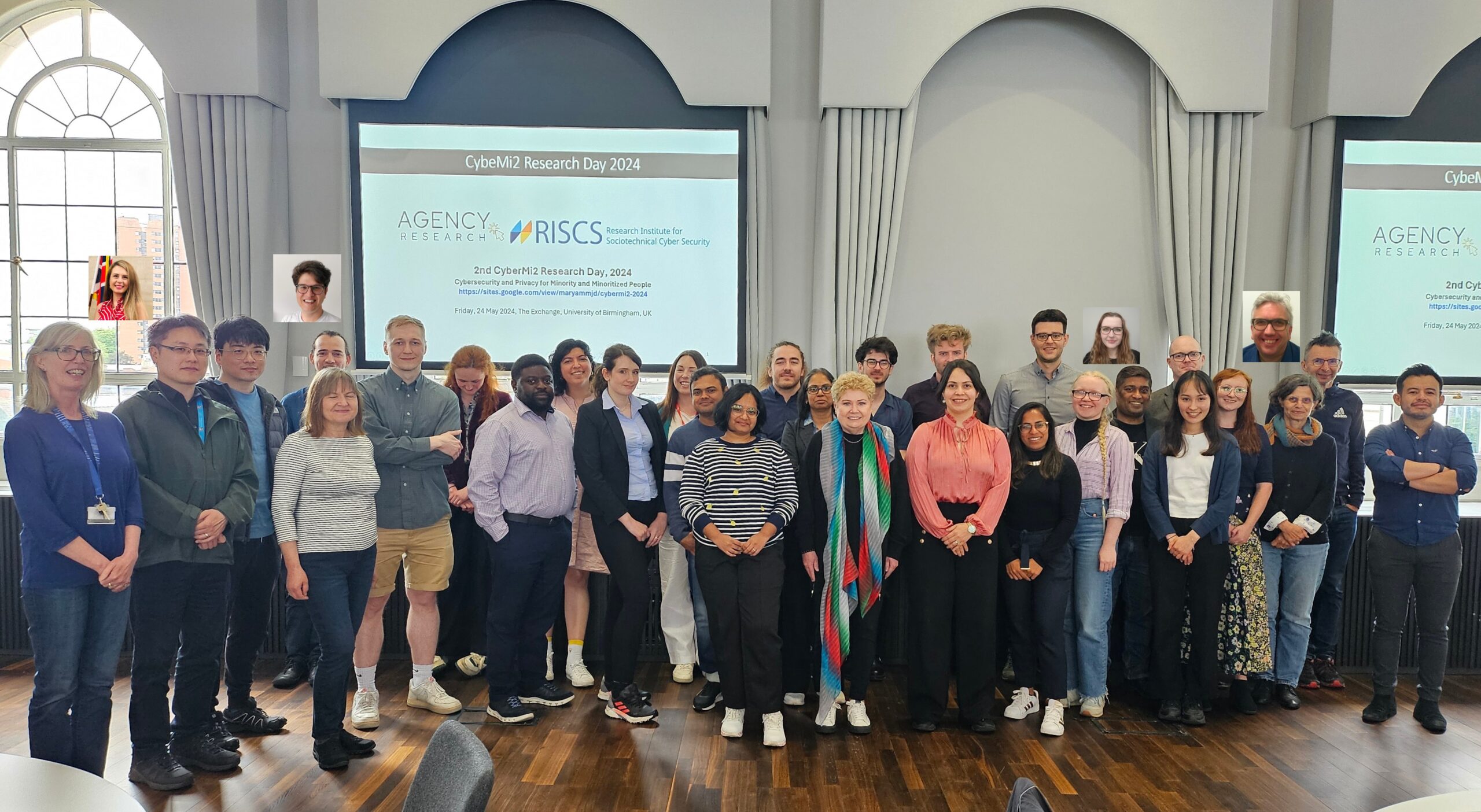by Maryam Mehrnezhad
On 24 May 2024, we had a successful second CyberMi2 Research Day, which was dedicated to Inclusive Cybersecurity and Privacy for marginalised users. Please visit here.
It was a pleasure to partner with Research Institute for Sociotechnical Cyber Security (RISCS) and AGENCY Research. CyberMi2’24 included a series of talks on topics such as smart home, digital health, image-based sexual abuse, animal tech, assistive technologies, online hate, misinformation, gender tech abuse, and beyond.
The first session included the following talks: a joint welcome by Maryam Mehrnezhad (RHUL) and Aad van Moorsel (Birmingham), the AGENCY PI and CoI, respectively. Shola Olabode and Deborah Chambers (Newcastle) then presented their work on the Complex Online Harms and the Smart Home. We moved to a talk by Kovila Coopamootoo (KCL) on Gender, Online Safety and Sexuality, concluding the session by a talk by Stephen Cook (RHUL) on Bluetooth Vulnerabilities in Intimate Digital Health IoT Devices and Apps.
The second session had the following talks: Fact-Verification: Detecting Misinformation and Addressing Fake News by Shrikant Malviya (Durham), Security and Privacy Risks vs Concerns of Pet Tech Users delivered by Scott Harper (Newcastle), Measuring Online Hate Against Women and Girls on 4chan by Adrian Bermudez Villalva (RHUL), Security and Privacy of Users with Visual Impairments by James Clarke (Surrey), and Mind the FemTech Gap: Regulation Failings and Exploitative Systems delivered by Maryam Mehrnezhad (RHUL).
After lunch, we had our third session starting by a talk on ChatGPT-Based Framework for User-Centric Privacy Policy Visual Analysis by Becca Owens and Maxim Kalameyets (Newcastle), followed by a talk by Christian Weinert and Sophie Hawkes (RHUL) on Perceptual Hash Inversion Attacks on Image-Based Sexual Abuse Removal Tools, and then another talk on FFT-assisted Secret Generation via Gyroscope Measurements on Smartphones by Vinod Khandkar (Surrey), and finally the final talk by Taylor Robinson (RHUL) on Security, Privacy, and Safety in Menopause Technologies.
Our fourth and final session was designed for round-table discussions with 4 topics, led by experts from different backgrounds:
- Topic 1: “I wanted the app whatever the terms and conditions said”: FemTech and User Privacy (Manna Mostaghim, Department of Health Policy, LSE)
- Topic 2: Caught in the Web: Technology’s Dual Role in Image-Based Sexual Abuse (Christian Weinert, Information Security Department, RHUL)
- Topic 3: Responsible Technology Innovation for Marginalised Users: Challenges and Opportunities (Jehana Copilah Ali, Business School, Birmingham)
- Topic 4: “This PET is an obstacle for me”: Security and Privacy of People with Disabilities (James Clarke, School of Computing, Surrey)
We concluded the day by focusing on the takeaways and potential collaborations in the future. Apart from the day itself, the speakers were invited to two social dinners to facilitate more networking opportunities. We all enjoyed the activities designed for early career researchers to expand their networks including presenting their work, round-table discussions, and social dinners.
While it might look easy, so much work goes behind the scenes to organise these events. From the AGENCY Research project, Aad van Moorsel, Sheena Robertson, Helen Orpin, and Zoya Pourmirza helped us deliver this day at University of Birmingham. Ehsan Toreini, Adrian Bermudez Villalva, Stephen Cook, and Christian Weinert from Royal Holloway, University of London and University of Surrey contributed to organising the event. It is almost impossible to detect that some of these people have been photoshopped in the group photo 😎
I would like to sincerely thank all the speakers and attendees who contributed to all the fantastic conversations. We continue to work on such important topics to enable citizens to use modern technologies and improve the quality of their lives without risk and fear.
Please visit here.





